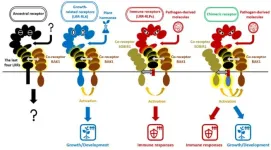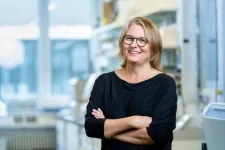Stroke survivors living in areas with high levels of unemployment, low income, low education levels and poor housing quality had twice the risk of poor recovery after a stroke compared to those living in areas with better conditions. The researchers say this study may help promote awareness of how social determinants of health are as important as clinical variables and health information when trying to identify stroke survivors who are at particularly high risk for poor long-term outcomes. Embargoed until 4 a.m. CT/5 a.m. ET, Thursday, Feb. 1, 2024
DALLAS, Feb. 1, 2024 — Stroke survivors living in areas with poor economic conditions were twice as likely to have a poor recovery compared to survivors living in areas with better conditions, according to a preliminary study to be presented at the American Stroke Association’s International Stroke Conference 2024. The meeting will be held in Phoenix, Feb. 7-9, and is a world premier meeting for researchers and clinicians dedicated to the science of stroke and brain health.
“This research was inspired by the people I work with daily,” said Leah Kleinberg, B.A., a postgraduate clinical research associate in the Falcone Lab in the department of neurology at Yale School of Medicine in New Haven, Connecticut. “Although stroke patients from differing socioeconomic backgrounds often have similar functional status at discharge, outcomes can vary dramatically a year later. As a clinical research associate, I get to interact with them far beyond the completion of their urgent treatment, which sparked my interest in exploring the long-term outcomes for these patients.”
Kleinberg and her colleagues found a significant correlation between functional outcomes after a stroke and the socioeconomic factors noted by census blocks.
“The magnitude of this impact is what was most surprising. We did not expect a large disparity in outcomes, yet we found patients in the most economically disadvantaged areas were twice as likely to have unfavorable outcomes compared to patients in areas with less unemployment, better housing quality and higher income and education levels,” she said.
In this study, researchers used data from Yale’s Longitudinal Study of Acute Brain Injury and Area Deprivation Index (ADI) rates for the 2020 U.S. Census blocks to compare outcomes among stroke survivors by socioeconomic disadvantage factors. The ADI evaluates a neighborhood on levels of income, education, employment and housing quality and is specific to each zip code. It was developed by the U.S. Health Resources & Services Administration to inform health care delivery and policy for disadvantaged areas.
This analysis found:
Among 2,164 people with ischemic (clot-caused) stroke, the one-year unadjusted risk of poor outcomes was 35%, 40% and 46% for patients residing in neighborhoods with low, intermediate and high deprivation, respectively. After considering the inability of the ADI to specifically measure each level of deprivation, researchers determined that those living in intermediate and high deprivation areas had 44% and 107% greater risk, respectively, of unfavorable outcomes, compared to patients living in neighborhoods with low deprivation levels. The patients in the poor outcomes category were unable to look after their own affairs without assistance and required some help in daily activities. In the good outcomes category, patients could live independently, though some might have had residual symptoms or disability. “We hope this study will help promote awareness of how social determinants of health are as important as clinical variables and health information when trying to identify patients who are particularly high risk for poor long-term outcomes,” she said.
Study details:
The Yale Longitudinal Study follows stroke survivors admitted to the Yale Health System, collecting outcome data at 3 months, 6 months and then yearly after hospital discharge. Zip code data was available for 2,164 patients enrolled in the Yale Longitudinal Study between 2018 and 2021. The average age was 69; 48% were women; 7.5% were Black adults and 7.7% were Hispanic adults. Stroke outcomes were determined by trained assessors using the modified Rankin Scale, which measures disability severity after stroke on a scale of 0-6, from no disability (able to carry out all daily living tasks and duties without assistance) to severe disability (bed-ridden, incontinent, requiring constant nursing care and attention). Study limitations are that the Area Deprivation Index relies on geographic blocks and does not evaluate each household separately. Also, due to the observational nature of the study, the findings can only note associations and cannot determine cause and effect.
When considered separately from other cardiovascular diseases, stroke ranks fifth among all causes of death, behind diseases of the heart, cancer, COVID-19 and unintentional injuries/accidents, according to the American Heart Association’s Heart Disease and Stroke Statistics 2024 Update. The Association also recognizes that considering the role of social determinants of health is essential in improving the cardiovascular health of all Americans.
“Access to quality care, nutritious foods, stable housing or other basic health needs are crucial for people recovering from stroke,” said Elizabeth A. Jackson, M.D., M.P.H., FAHA, immediate past chair of the Association’s Committee on Social Determinants of Health and a professor and director of the Cardiovascular Outcomes and Effectiveness Research Program at the University of Alabama at Birmingham, who was not involved in the research. “Unfortunately, these data are not surprising, rather, they support prior evidence suggesting health disparities are disproportionately experienced in areas where higher degrees of social vulnerability exist.”
Co-authors, disclosures and funding sources are listed in the abstract.
Statements and conclusions of studies that are presented at the American Heart Association’s scientific meetings are solely those of the study authors and do not necessarily reflect the Association’s policy or position. The Association makes no representation or guarantee as to their accuracy or reliability. Abstracts presented at the Association’s scientific meetings are not peer-reviewed, rather, they are curated by independent review panels and are considered based on the potential to add to the diversity of scientific issues and views discussed at the meeting. The findings are considered preliminary until published as a full manuscript in a peer-reviewed scientific journal.
The Association receives funding primarily from individuals; foundations and corporations (including pharmaceutical, device manufacturers and other companies) also make donations and fund specific Association programs and events. The Association has strict policies to prevent these relationships from influencing the science content. Revenues from pharmaceutical and biotech companies, device manufacturers and health insurance providers and the Association’s overall financial information are available here.
Additional Resources:
Video interview with ASA volunteer expert: Elizabeth A. Jackson, M.D., M.P.H., FAHA and other multimedia are available on the right column of the release link https://newsroom.heart.org/news/where-you-live-may-be-associated-with-more-successful-stroke-recovery?preview=fddd2665b4b2c5b376dc8244244b087a After Feb. 1, view abstract poster HUP3 in the ASA International Stroke Conference 2024 Online Program Planner AHA Statement: Wide-ranging strategies needed to eliminate racial and ethnic inequities in stroke care (May 2023 AHA news release: Living near a “food swamp” may increase stroke risk among adults 50 and older (Feb. 2023) AHA News Release: Structural racism: Communities with higher redlining scores had higher rates of stroke (March 2021) AHA news release: Analysis finds multiple social disadvantages magnify stroke risk (July 2020) AHA news release: Housing conditions affect cardiovascular health risks (July 2020) AHA health initiative: Lets Talk About Stroke Rehabilitation For more news at ASA International Stroke Conference 2024, follow us on X (formerly known as Twitter) @HeartNews #ISC24
###
About the American Stroke Association
The American Stroke Association is devoted to saving people from stroke — the No. 2 cause of death in the world and a leading cause of serious disability. We team with millions of volunteers to fund innovative research, fight for stronger public health policies and provide lifesaving tools and information to prevent and treat stroke. The Dallas-based association officially launched in 1998 as a division of the American Heart Association. To learn more or to get involved, call 1-888-4STROKE or visit stroke.org. Follow us on Facebook, X.
END




